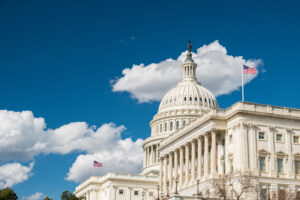Twenty attorneys have submitted his or her name to the Judicial Nominations Commissions to fill the vacancy on the District of Columbia Superior Court that was created when former Chief Judge Rufus King took senior status.
And the applicants are:
- Diane Brenneman, Superior Court magistrate judge
- Mark Dubester, assistant U.S. attorney for the District of Columbia
- Diana Epps, Superior Court magistrate judge
- Daniel Friedman, director of training, U.S. Attorney’s Office for the District of Columbia
- Sharon Goodie, administrative law judge, D.C. Office of Administrative Law Hearings
- Teresa Howie, assistant U.S. attorney for the District of Columbia
- Sharon Larkin, deputy assistant general counsel, U.S. Government Accountability Office
- Leonard Long Jr., Law Offices of Leonard L. Long Jr.
- Richard Love, senior assistant attorney general, Office of the Attorney General for the District of Columbia
- John McCabe Jr., Superior Court magistrate judge
- Aida Melendez, Superior Court magistrate judge
- Craig Moore, attorney at law
- Stuart Nash, associate deputy attorney general, U.S. Department of Justice
- Lloyd Nolan Jr., Public Defender Service for the District of Columbia
- William Nooter, Superior Court magistrate judge
- Lori Parker, Superior Court magistrate judge
- Maria Raffinan, Public Defender Service for the District of Columbia
- Elizabeth Shapiro, Civil Division, U.S. Department of Justice
- Edward Ungvarsky, Public Defender Service for the District of Columbia
- Richard Wilson Sr., chief of the tax, bankruptcy, and finance section, Office of the Attorney General for the District of Columbia
It is important that the nominating committee properly vet these candidates because ultimately a person nominated and appointed to the Superior Court bench will have a substantial impact on claims individuals might bring in the District of Columbia.
Medical malpractice actions in the District have become increasingly expensive to litigate, costing anywhere from $40,000 to $100,000 to bring before a jury. Superior Court judges have the ability to help regulate the cost of litigation pursuant to the Superior Court Rules of Civil Procedure.
Moreover, Superior Court judges make important rulings throughout the life of a case that can greatly impact an individual’s likelihood of obtaining justice. It is imperative that whoever is selected to fill the judicial vacancy have experience in both civil and criminal litigation.
@thumbnail.jpg)
Both an Emory School of Law graduate and MBA graduate of Goizueta Business School at Emory, Chris Nace focuses his practice on areas of medical malpractice, drug and product liability, motor vehicle accidents, wrongful death, employment discrimination and other negligence and personal injury matters.










Comments for this article are closed.